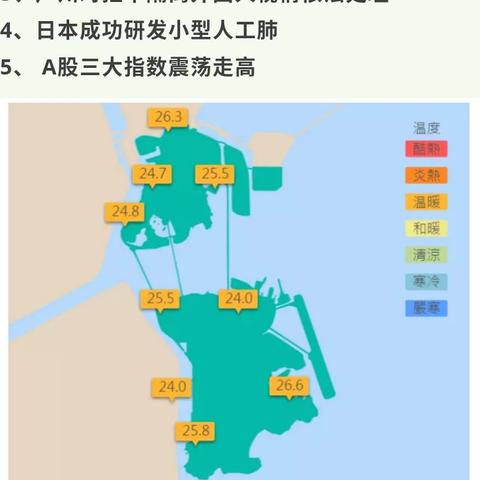Introduction
The transition towards digital payments has created a dynamic landscape within the financial sector across the globe, including in Macau, which is striving to adapt its policies to be contemporary and globally integrated. In this article, we aim to detail the juxtaposition of "Cross-Border Payment Expansion vs. Foreign Exchange Control Upgrade" within the specific context of Macau's strategic financial planning towards 2025. Both these concepts serve as critical components in shaping the economic policies and their successful execution will be pivotal in navigating the future of Macau's financial interactions worldwide. It is within this framework that Macau government has carefully crafted its vision for 2025, aiming to strike a delicate balance between facilitating transactions and maintaining regulatory control, which is ensured by the robustness of its foreign exchange controls.
Understanding Cross-Border Payment Expansion
Cross-border payment is an aspect that has seen significant growth, especially due to globalization and the facilitation of international trade. In Macau, this means the ability for businesses and individuals to make and receive payments across borders seamlessly. The government of Macau has recognized the potential of this expansion and has crafted policies that encourage its growth to foster economic development and global partnerships."Cross-Border Payment Expansion" in Macau’s 2025 financial planning is not merely about monetary transactions; it is about providing a transparent, secure, and accessible payment system that can accommodate the growing demands of international engagements. By expanding on cross-border payment infrastructures, Macau seeks to tap into the broader financial ecosystem, allowing for greater liquidity, investment opportunities, and economic stability.
Furthermore, the expansion of such payments requires certain enabling policies - this includes adherence to international payment standards, harmonization with global security protocols, and the provision of a regulatory framework that is conducive to digital finance innovations. Macau has been vigilant to ensure that the growth in cross-border payments aligns with their stringent financial controls, thereby making transactions more efficient without compromising on security. In the grand scheme of Macau’s financial ambition, cross-border payment infrastructure is a prime enabler for economic expansion and international relations.
Foreign Exchange Control Upgrade Vignette
Contrasting with the facilitation of transactions is the regulatory aspect presented by foreign exchange controls. "Foreign Exchange Control Upgrade" is a critical piece of Macau's financial policy puzzle. Exchange controls are a type of government regulation that restricts the exchange of one currency for another particularly when conducted outside of official channels. These controls play a significant role in preventing capital flight, managing inflation, and stabilizing the economy. “Foreign Exchange Control Upgrade” in the context of Macau refers to the strategic enhancement of these controls to ensure the efflux and influx of foreign capital is monitored and managed effectively, thereby maintaining the integrity of the local currency and overall economy of Macau.
The "Foreign Exchange Control Upgrade" aims to create a more comprehensive framework that aligns with international standards while remaining sensitive to Macau's unique economic position. This upgrade involves the introduction of stringent measures to counter illicit financial activities, improve oversight over financial institutions, and enforce better transparency on capital movements. Understanding the balance required in such an upgrade is vital for Macau's financial sector to understand the delicate yet fundamental distinction between promoting financial liberalization and ensuring financial stability via controls.
Harmonizing Expansion and Control
The harmonization of "Cross-Border Payment Expansion" and "Foreign Exchange Control Upgrade" is a crucial aspect of Macau's financial strategy. This specific balance aims to enhance financial integration without compromising the control mechanisms that are vital for Macau's economic health. Strategically, this balance ensures that while the government promotes ease of transactions and fosters stronger international financial relations, they do not inadvertently create vulnerabilities that could be exploited.
For instance, by implementing a biometric verification system to approve large cross-border transactions, Macau could effectively upgrade its foreign exchange controls, deterring illicit activities while maintaining efficiency in the cross-border payment process. Such practices not only streamline verification processes but also safeguard against financial fraud and improve trust in the financial systems.
The execution of these policies requires FinTech and technological integration, something that Macau has been actively investing in. By leveraging AI, blockchain, and data analytics, Macau aims to create a more secure, transparent, and efficient cross-border payment ecosystem that aligns with its upgraded foreign exchange controls. This is a testament to how Macau sees technology as a means to achieve its financial policy goals.
Policy Implications for the Future
Looking towards 2025, Macau's financial policies' implications are vast. Macau stands at the crossroads of east and west, economically speaking, which implies that any shifts in policy will have profound effects. The integration of advanced cross-border payment systems within the context of rigorous foreign exchange controls aids Macau in staying globally relevant, thus increasing its attractiveness for foreign investments without compromising indigenous economic stability.
On the financial front, "Cross-Border Payment Expansion" can foster a surge in remittance services, which are particularly important for a city that relies heavily on labor imports from the surrounding regions. Remittances, when facilitated by an effective cross-border payment system, contribute significantly to the economies of these labor-sending countries and enhance Macau's role as a financial mediator in East Asia.
Simultaneously, the "Foreign Exchange Control Upgrade" ensures that Macau remains a stable platform for global financial players. It provides the confidence necessary for foreign entities to engage in business within Macau by ensuring that the capital spent or invested is safeguarded and will serve to protect the domestic economy from volatility and unpredictable capital movements.
Conclusion
Macau's vision for 2025 is one of finely balanced policies. By effectively managing the dichotomy between "Cross-Border Payment Expansion" and "Foreign Exchange Control Upgrade", Macau is positioning itself to navigate the complexities of the 21st-century economy. This balance is crucial to maintain competitiveness in the global financial landscape while preserving economic stability and integrity. The alignment of these two aspects indicates a forward-thinking approach that not only meets the current needs but also lays a robust foundation for future economic endeavors, ensuring that Macau remains a key player in international finance.
















 琼ICP备2023003230号-1
琼ICP备2023003230号-1
还没有评论,来说两句吧...